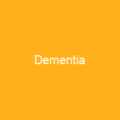Understanding Depression: A Global Health Crisis
Depression is more than just feeling sad; it’s a complex mental state affecting millions worldwide. Imagine if you were walking through a dense forest, and suddenly the path became overgrown with thorns. Each step forward feels like an uphill battle, making it hard to find joy in anything around you. That’s what depression can feel like for many people. According to the World Health Organization (WHO), about 3.5% of the global population is affected by this condition.
What Triggers Depression?
Depression can be triggered by a myriad of factors, from personal experiences to broader societal issues. Think of depression as a puzzle with many pieces. Each piece represents a different factor that could contribute to the overall picture. Adversity in childhood, poor housing conditions, stress at work or home, and even certain medications can all play a role. For instance, imagine you’re trying to build this puzzle on a noisy street; it’s hard to focus, right? Similarly, exposure to noise and air pollution can make it harder for someone to maintain their mental health.
Childhood Adversity
Childhood experiences often set the stage for future challenges.
Children who face physical or sexual abuse are more likely to develop depression later in life, much like a tree that has been damaged by storms may struggle to grow tall and strong.
Social and Environmental Factors
The environment we live in can significantly impact our mental well-being.
Living in large urban areas often means dealing with higher levels of stress, pollution, and social isolation. It’s like trying to breathe underwater; it’s hard to catch your breath.
Depression: Symptoms and Impact
The symptoms of depression can vary widely from person to person, but they all point towards a profound sense of sadness and disinterest in activities once enjoyed. Imagine if you were once the life of the party, always ready for fun and adventure. Now, every day feels like walking through a dark tunnel with no light at the end. Depression can cause changes in appetite, sleep patterns, and even thoughts about your own existence. It’s not just feeling sad; it’s a deep-seated sense of hopelessness that can make you question everything.
Medical and Non-Medical Causes
Depression isn’t always caused by personal issues alone; sometimes, it’s the result of broader societal factors.
Chronic pain or certain medical treatments like beta-blockers can also lead to depression. It’s like having a headache that won’t go away no matter how many aspirins you take.
Theories and Treatments
Understanding the causes of depression is crucial for finding effective treatment options. Just as there are different types of puzzles, so too are there various theories about what causes depression. From cognitive triad to psychogeographical theory, each offers a unique perspective on this complex condition.
Cognitive Triad and Psychogeographical Theory
The cognitive triad suggests that negative thoughts about oneself, the world, and the future contribute to depression.
On the other hand, psychogeographical theory looks at how societal factors like historical trauma and systemic exclusion can lead to depression on a broader scale. It’s like understanding not just one piece of the puzzle but the entire picture.
Addressing Depression: A Global Challenge
The global burden of depression is immense, with over 300 million people affected worldwide. Imagine if every person in a city was struggling to find their way through this dark forest. That’s the scale we’re talking about here. The number of people living with depression has increased by 18% between 2005 and 2015, according to WHO data. This is not just an individual issue; it’s a public health crisis.
Screening and Treatment
Effective screening and treatment are crucial for addressing depression on a global scale.
Group interpersonal therapy and cognitive behavioral therapy have shown promise in low-resource settings, making mental health care more accessible to those who need it most.
A Historical Perspective: From Humors to Modern Understanding
The history of depression is as complex as the condition itself. From ancient theories about bodily fluids to modern understandings of neurotransmitters, our understanding has evolved over time. Imagine if you were trying to solve a mystery; each new piece of evidence brings you closer to the truth.
Unraveling the Mystery
Theories like the cognitive triad and psychogeographical theory offer fresh insights into depression, challenging traditional views.
For instance, recent research suggests that unemployment doubles the risk of developing depression, while high levels of hypercompetitiveness are linked to higher rates of depression. It’s like realizing that not all puzzles have a single solution; sometimes, there are multiple paths to understanding.
A Call to Action
Addressing depression requires a multifaceted approach, involving both individual and societal efforts. It’s time we recognize the importance of mental health on a global scale and work together to find solutions that benefit everyone. Just as a forest needs care and attention to thrive, so too does our collective well-being.

You want to know more about Depression (mood)?
This page is based on the article Depression (mood) published in Wikipedia (retrieved on December 13, 2024) and was automatically summarized using artificial intelligence.





